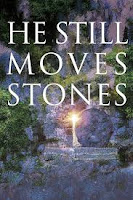 |
| (Amazon UK link) |
I liked this volume considerably better than the first. The theme of the book is ‘bruised reeds and smouldering wicks’, with the book subtitle being ‘Everyone needs a miracle’. The introduction suggests a kind of art gallery, with ‘before’ and ‘after’ pictures of many individuals, showing them struggling with difficult circumstances and then more relaxed, as their problem is solved.
Each chapter then looks at a different example from the Bible of what the author means, The first chapter, for instance, is about the woman caught in adultery, mentioned in John’s Gospel. The chapter opens with a more modern anecdote, a tragic one about an individual whose life was consumed by shame. The rest of the chapter looks at the woman from the Bible.
She’s a familiar character, but Max Lucado looks at her story from a slightly different perspective from than the usual ones. She is guilty - although not the only guilty party. And shame was (and is) a huge issue in Middle Eastern society. Her meeting with Jesus resulted not only in her not dying an unpleasant death, but the knowledge that she was not, in fact, condemned. We don’t know what happened to her, but I found it a very interesting chapter.
Subsequent chapters either look in some detail at the point of view of another person, named or otherwise, or take a more general view. Each one makes the point that God is with the person or people concerned, and that the miracles involved were not always the obvious ones. Some were healed of being lame or blind; but the real healing was from within, as the people learned to move forward without fear, or shame, or other deep seated emotions that were eating them up from inside.
I’ve been reading this, a chapter or two each day, as the coronavirus pandemic takes place. So the idea of God being with us, speaking to us in the midst of a crisis is very relevant. Not all problems are solved, from an obvious or human point of view. But God is working, and most importantly he is here, healing us of past hurts and betrayals, helping us to move forward even in the midst of worry, bereavement or serious illness.
There’s nothing new in these meditations, other than some relevant anecdotes in many chapters. But from the Scriptural point of view I didn’t learn anything that I hadn’t heard before, and the questions in the study guide at the back felt rather trite. But I like books that offer a different perspective on a well-known story or situation, and I found it quite thought-provoking.
The writing is good, the book well-structured, and the inevitable American focus not too disturbing. It is overtly a Christian book, of course; there's much about forgiveness and repentance, and an assumption that we believe the Bible stories. But it could be read by those with little faith or none, if they don't mind the clear Christian messages.
I felt it quite appropriate, given the title, that I finished reading ‘He still moves stones’ on Easter Sunday.
Recommended.
Review copyright 2020 Sue's Book Reviews
No comments:
Post a Comment